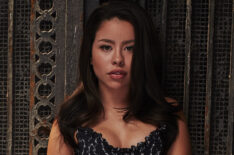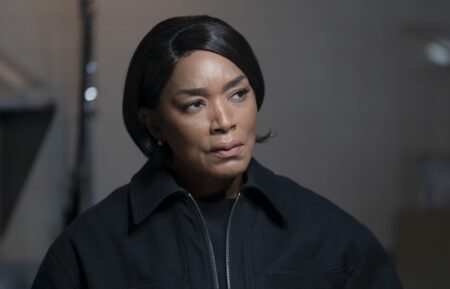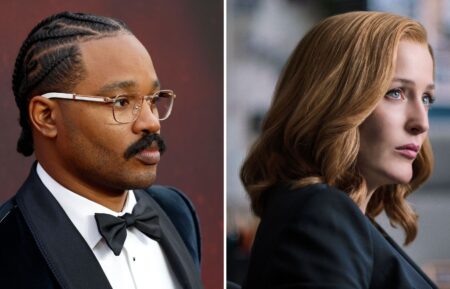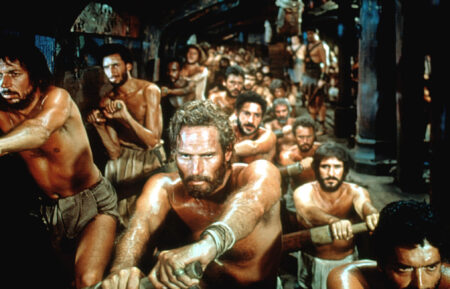Why You Should Be Watching Freeform’s ‘Good Trouble’
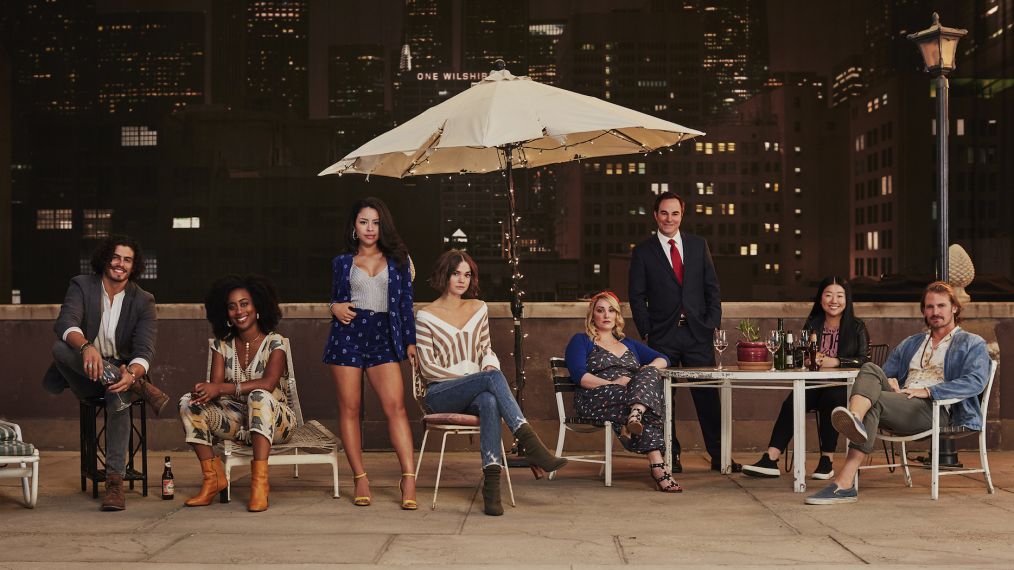
Opinion
Freeform’s powerful series The Fosters may have come to an end, but Callie (Maia Mitchell) and Mariana’s (Cierra Ramirez) story continues in Good Trouble.
The two sisters can be seen grown-up (kind of) in the spinoff, and it’s everything we hoped it would be. After a five-year time jump, Good Trouble takes us on a journey with Callie and Mariana, and you should be taking notes on some of the reasons why this show is worth watching.
Diversity
The Coterie’s diverse residents are what sets the show apart from any other young adult TV show. There had been plenty of LGBTQ+ representation on The Fosters, but this is the first time we see a bisexual character become a part of Callie (Maia Mitchell) and Mariana’s (Cierra Ramirez) lives. We get to see what it would be like in a tricky love triangle from the perspective of both Callie and Gael (Tommy Martinez), and what it’s like to date someone who is bisexual – and also lives in your building.
Although we’ve seen transgender characters in the past, Good Trouble gives us a fresh new perspective on what it’s like being transgender today. Now we get to see Callie act as an almost-lawyer when she helps Gael’s sister, Jazmin (Hailie Sahar) who gets denied a job for being a transgender woman. Bringing awareness to what transgender people have to deal with on a daily basis can be very important for a younger generation to see.
Apart from the LGBTQ+ inclusion, we also see a range of different ethnic backgrounds in Good Trouble that we hadn’t seen in The Fosters. Alice (Sherry Cola), Raj (Dhruv Uday Singh) and Malika (Zuri Adele) are just a few of the characters who take diversity up a level.
Female Empowerment
Women working in tech is something we don’t get to see often. Latina women working in tech is something we don’t get to see ever. Thankfully, Mariana changes that, but after she lands a job at a tech start-up, she realizes that working in tech is just one huge Boy’s Club. Instead of getting discouraged, Mariana channels all of her angry energy into proving herself at the company. Hopefully, her drive and passion can inspire young girls to do the same thing.
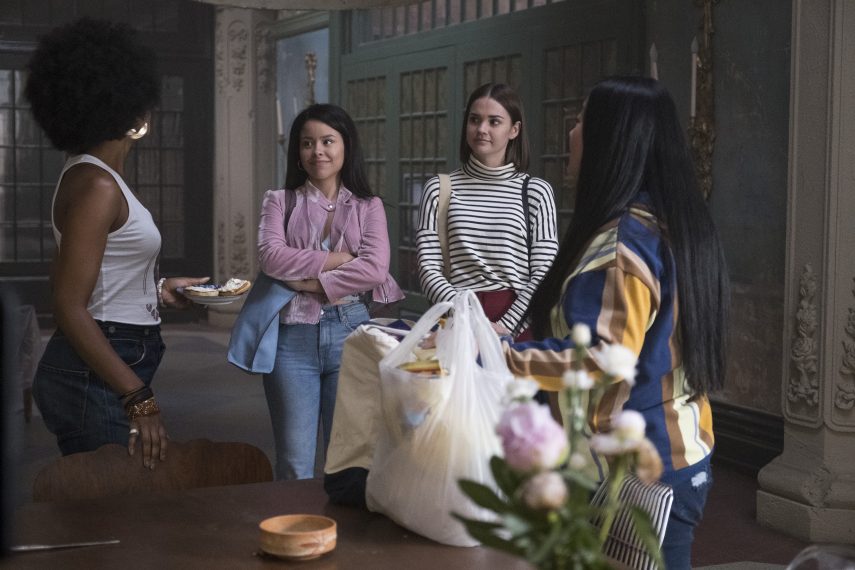
(Freeform/Beth Dubber)
Most women on TV are seen ripping each other apart in a corporate setting, but Mariana decides that women need to stick together – especially in an office full of men. She opts to have all of the women form into a feminist power group of sorts. Meanwhile, at Callie’s law firm, she constantly has to compete with Rebecca (Molly McCook) for the Judge’s approval. We very rarely see the two aspiring female lawyers getting along, which just makes their job more difficult, showing the importance of empowering women instead of tearing them down.
We all make mistakes, and Callie and Mariana are no different. What Good Trouble does right, is that we get to see how Callie and Mariana fix their rookie mistakes as young women starting their careers. After blatantly lying to her coworkers about knowing who Malika is, Callie quickly realized the risk was too high, and she confronted the judge on her own, before anyone else could ruin her career. Even though she made the mistake of lying in the first place, she faced reality and owned up to what she did wrong, which teaches young girls to be accountable for their actions – especially if they know they messed up.
It Brings Awareness to Social Issues
The leader of Mariana’s group, Alex (Dustin Ingram), is a stereotypical young male, who continuously makes racist and sexist comments to Mariana and Raj. Alex purposely mispronounces Mariana’s name, and offensively speaks to Raj in an Indian accent. This only fuels Mariana into making a change, but then, when Mariana and Raj both get asked to model for the company, she quickly realizes the very few people of color who work in her office were also asked to be interviewed as well. A lot of companies, groups, and even college campuses, advertise themselves as ‘diverse,’ when the reality is that they handpicked the people who are shown in the advertisements because of their race or gender.
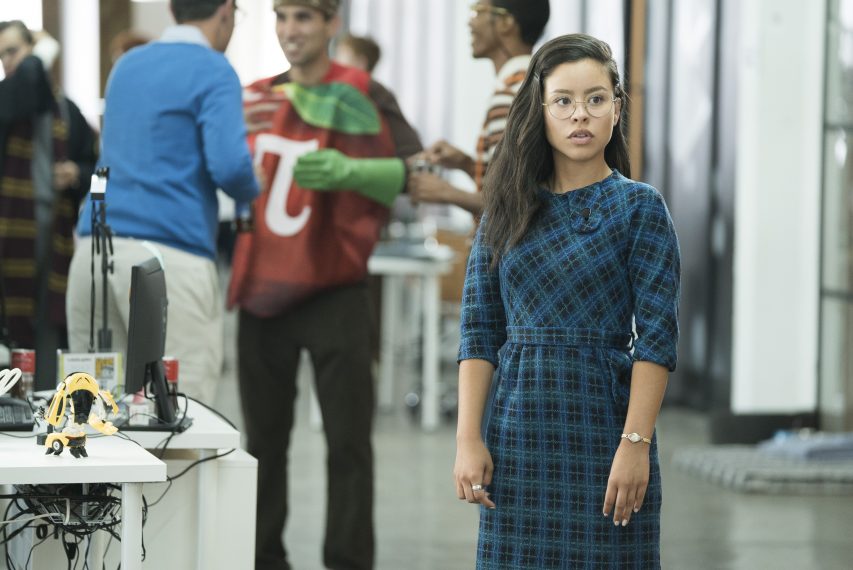
(Freeform/Eric McCandless)
We also see campaigns and rallies, like Black Lives Matter, in the show. And even Callie is the clerk on a case where an innocent black man was shot by a police officer. And when Steph and Lena come to visit their daughters (and accidentally get high), Lena has a flashback to the racist experience she had while running for State Assembly.
Emphasis on Family
After moving into a communal living space, the Adams-Foster girls are reminded of what it’s like to be a part of a non-traditional family again. Living in a commune might give Callie flashbacks to bouncing around in the foster care system, or to living in Girls United, but the Coterie becomes Callie and Mariana’s home because of the people who live there.
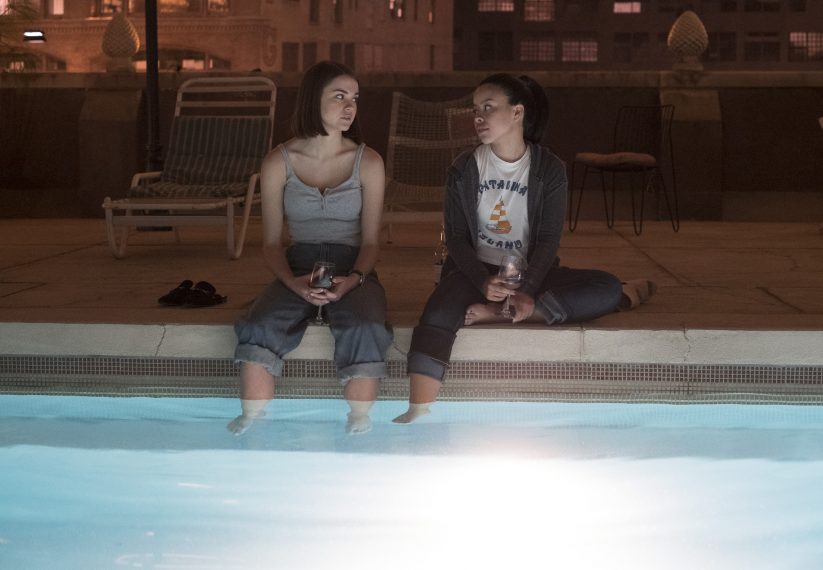
(Freeform/Beth Dubber)
Even though everyone at the Coterie comes from a different background, at the end of the day, they can still gather around the dinner table together like family. If Callie and Mariana learned anything, it’s that you don’t have to share blood to be family.
Good Trouble, Tuesdays, 8/7c, Freeform

